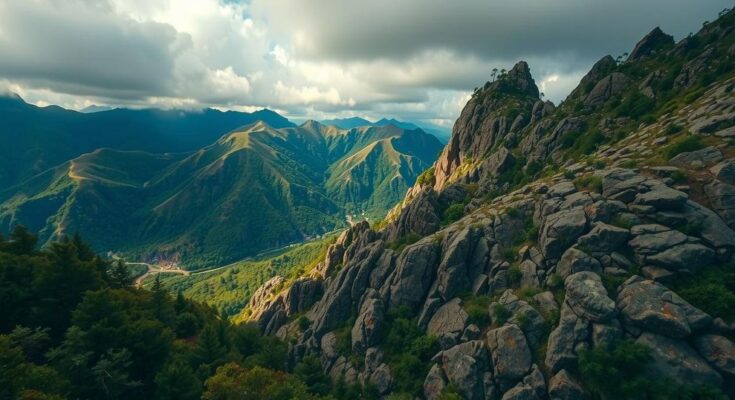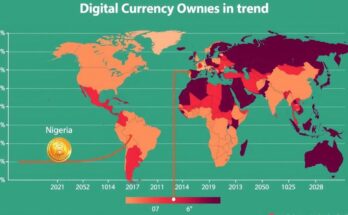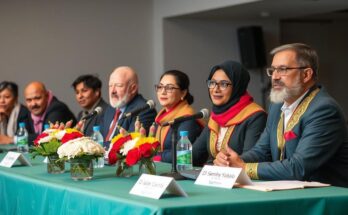A mountain collapse in Katanga, DRC, unearthed significant copper deposits, sparking social media discussions about ongoing poverty and potential exploitation from the West. The region is rich in minerals but suffers from significant human rights issues amid mining operations. A call for nationalization of resources has emerged to ensure local communities benefit from their wealth, in light of the rising demand for metals due to clean energy technologies.
A recent event in the Katanga region of the Democratic Republic of Congo has garnered attention as a mountain collapse unveiled significant copper deposits. Video footage shared on social media captured the moment, prompting various reactions from netizens. Many expressed concerns over the ongoing poverty in African nations and the potential for Western exploitation of local resources. A prominent sentiment among users was the hope that historically exploitative practices would not resurface, reflecting a wider awareness of the region’s colonial past and the ongoing challenges related to mining activities. The Katanga region is recognized for its rich mineral wealth, particularly within Africa’s copper belt, extending from Zambia to Congo. This area was once the largest copper-producing place globally but faces challenges with human rights issues related to mining operations. Notably, a report by Amnesty International highlighted the adverse implications of mining, including forced evictions and systemic abuses as companies seek to expand operations. This situation raises questions regarding the balance between resource extraction and the rights of local populations, amidst growing global demand for copper and cobalt due to clean energy technology. Noteworthy is the true potential of these resources to contribute positively to the DRC’s economy, providing jobs and infrastructure benefits. However, there is a pressing need for nationalization of these resources to ensure equitable distribution of profits for the benefit of local communities, including essential services like healthcare and education. The continuous extraction of copper and cobalt, necessary for technology such as electric vehicle batteries, must be managed with a commitment to human rights and environmental justice. Agnès Callamard, Amnesty International’s Secretary General, emphasizes that any transition to clean energy must be accompanied by a determination to protect human rights and report abuses, aiming for an equitable and just approach to resource management.
The Democratic Republic of Congo houses extensive mineral resources, particularly in the Katanga region, which is part of the larger copper belt of Africa. Following decades of mining activities that date back to the early 20th century, the area has historically contributed considerably to global copper production. Economic pressures surrounding cobalt and copper mining have raised public awareness about the detrimental effects on local communities, particularly in the wake of increased demand for clean energy technologies that heavily rely on these metals for battery production. Significant human rights violations have been reported, urging stakeholders to reconsider how resources are extracted and managed in the interest of local populations.
The collapse of the mountain in Katanga, revealing substantial copper deposits, underscores the dual-edged nature of resource wealth in the Democratic Republic of Congo. The event not only highlights the potential for economic benefits but also raises critical concerns regarding exploitation and human rights violations associated with mining endeavors. To harness these resources effectively and ethically, nationalization and a focus on equitable profit distribution are imperative. The international community must engage responsibly to ensure that the transition to clean energy does not come at the expense of local welfare and rights.
Original Source: www.livemint.com




